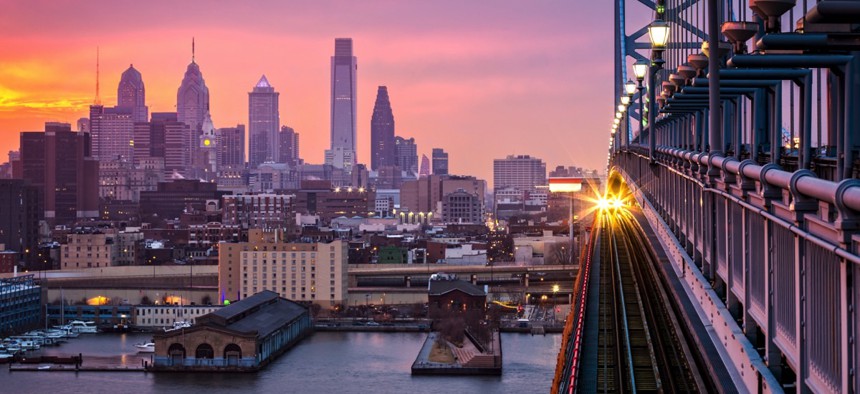Philly Faces a Big Question With Its Proposed Parking App: It May Be Too Easy to Use

Shutterstock.com
The ability to add meter time remotely will make it easier to avoid tickets. And that revenue helps fund the city’s schools.
Sometimes, an app can work too efficiently for the liking of local governments.
That’s the case in the city of Philadelphia, where Mayor Michael Nutter’s administration is worried a proposed parking app allowing users to add meter time remotely will cut into ticket revenue.
And parking fines help fund Philadelphia’s public schools.
"At a time when we are struggling to make sure the schools have the resources that we need, we need to make sure that we're not digging ourselves deeper in a hole," said Andrew Stober, Nutter’s transportation chief of staff, according to KYW-TV. “We look forward to trying to find a way to both bring this new technology here, and not have impacts for the school district.”
Pay-by-phone parking apps are nothing new. Cities from White Plains, New York, to Milwaukee, Wisconsin, are among the local governments that have developed their own versions.
ParkWhitePlains charges a 20-cent convenience fee and allows users to extend their meter time, while MKE Park’s convenience fee runs up to 38 cents but allows for the same extension.
The proposed app in Philadelphia—which could be deployed as soon as this fall—would be run by an outside company. It would warn users when their time is running low and allow them to add more time. Costs would scale up every few hours with an eventual cap to ensure space turnover.
Stober asked members of the Philadelphia City Council to delay approving the app until a study can gauge how school district revenue will be affected, The Inquirer reported.
Supporters of the app, including Philadelphia Parking Authority Executive Director Vince Fenerty, argue it will be revenue-neutral between scaling rates and the benefit to local businesses from making it easier for shoppers to park.
"We give tickets because we want people to comply with parking regulations," Fenerty said, according to The Inquirer. "Tickets are not there as a punitive measure. They're getting people to obey the parking ordinances, and that's what we're doing."
NEXT STORY: 6 big data projects to aid disaster response






